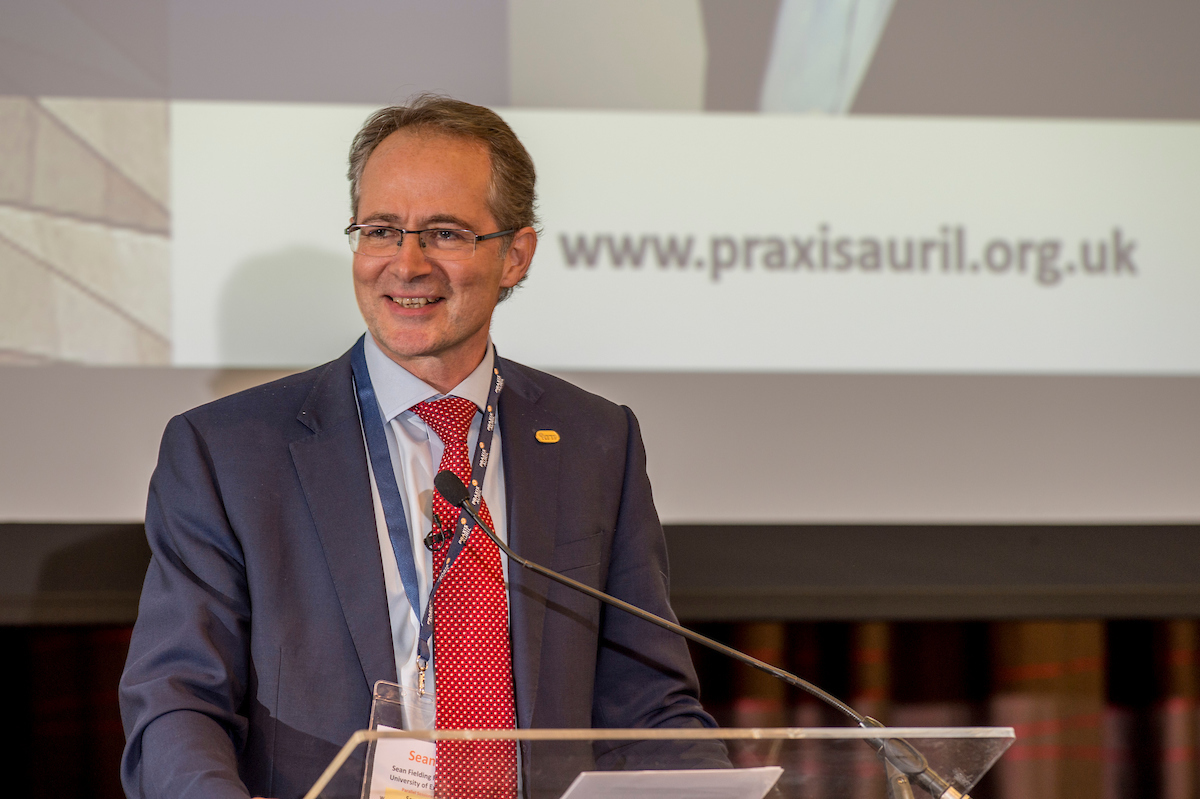After my final mince pie of the festive season I have taken on a new two-year challenge: from 1 January, I have become chair of PraxisAuril - the UK’s national association for university-business collaboration and knowledge exchange.
The previous chair of the board Angela Kukula, along with Dave Bembo, Martyn Davies and Carole Barron did extraordinary work to bring together the two organisations, PraxisUnico and AURIL, and for the first time we now have a single organisation representing over 5000 people in universities, public research bodies and industry. This is a fantastic resource to help drive the target of 2.4% of GDP for R&D and to grow the best knowledge economy in the World. There is plenty of evidence to show that university/ business collaboration in the UK is working well, with the total annual value of collaboration standing at over £4billion. The World Economic Forum’s Global Competitiveness Report puts the UK consistently in the top 10 out of 160 countries for university-industry research collaborations and the OECD ranks the UK top for collaboration with small businesses.
The question now is whether the UK can translate its world leading prowess in research into economic growth. All governments believe that their research performance is better than commercial exploitation (http://www.ncub.co.uk/blog/making-sense-of-data-and-politics-on-research-impact) but the evidence for the UK’s translation track record is strong, with significant progress made by the major research intensive universities to bring together large scale patient capital funds to drive innovation around them; new shared approaches via the Research England Connected Capability fund and SETsquared again recognised as the best University business incubation outfit in the World. Earlier last year, Bristol spin out Ziylo was acquired by NovoNordisk for what could turn out to be £800m and in December it was announced that three UCL spin outs had raised over £200m. There was also plenty of spin out activity over the past three months from universities as diverse as UCLan, Manchester, Dundee, Nottingham, Warwick, Newcastle. In my own University, Exeter we are supporting spin outs ranging from disease diagnostics; predicting epilepsy; solar powered building blocks; and graphene enhanced concrete.
But to focus just on research commercialisation is to miss the huge benefit from university business collaboration that comes from Knowledge Transfer Partnerships, training collaborations, consultancy projects, shared access to high tech facilities, exchange of staff and students, and the crucial role that universities often play in regional economic development through specialist sector innovation hubs, science parks and business schools.
We all recognise there is much more we can do and PraxisAuril plays a key role in helping knowledge exchange professionals to share best practice, learn new skills and gain new insights. Our training was attended this year by 847 delegates and 133 speakers presented at our conferences. The UK approach is so well respected that we have been running programmes in China for the past two years for 400 people. Overall we have trained nearly 5700 from 45 different countries. The challenge over the next two years is to strengthen the professionalism of the UK knowledge transfer community through continued best practice sharing from the UK and around the world; helping UK professionals achieve the highest standards through the international RTTP accreditation; and building stronger connections with key players in industry to help them to see the benefits of university business collaboration. We also hope to help our members to maximise the opportunity of the Government’s proposed new Knowledge Exchange Framework.
This is an important challenge and we will need all the help we can get. So if anyone wants to contribute in whatever way you feel able I’d be delighted to hear from you.

Sean Fielding RTTP
Director of Innovation, Impact and Business
University of Exeter
Chair, PraxisAuril 2019-21